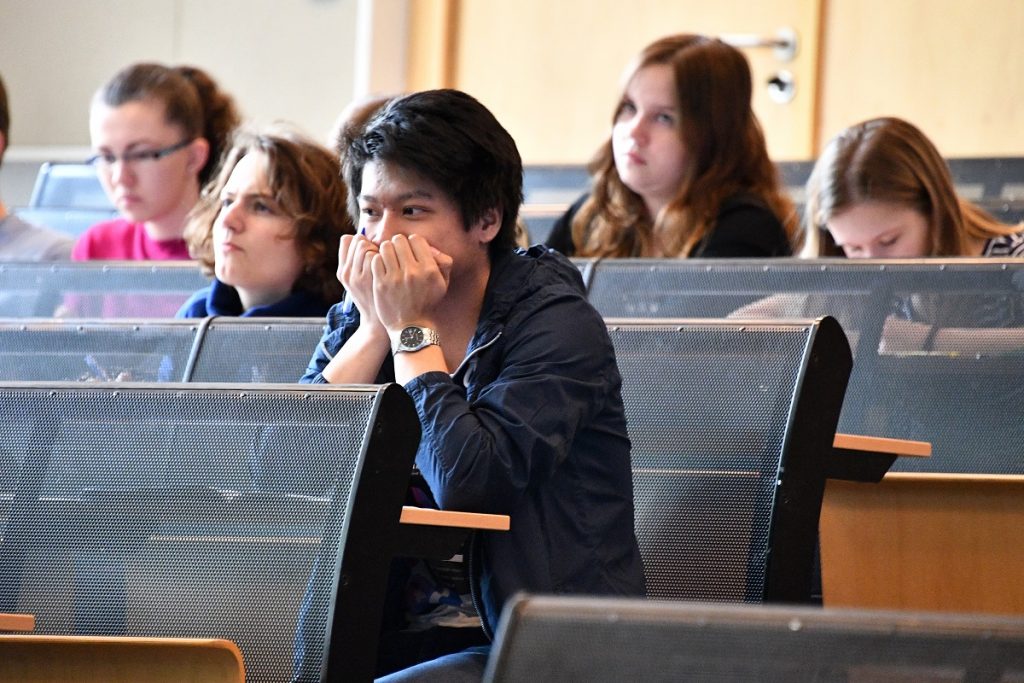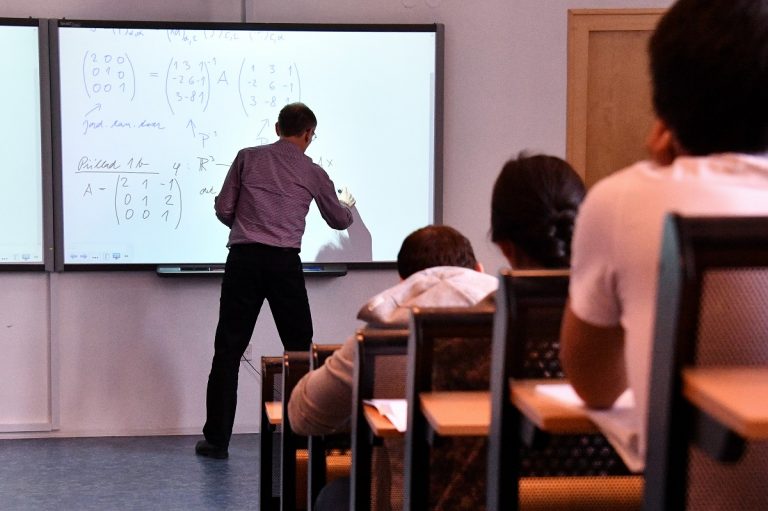Brno is often described as a student city, and rightly so. There are almost 65,000 young people studying at universities in the city, making up 1 in 6 of the population during the semester. To gauge the economic impact of students on the city, a large-scale survey has been conducted of students in Brno, the fifth time such a study has been carried out. Photo credit: M. Schmerkova, Brno City Municipality
Brno, 8 April (BD) – The survey sheds light on the economic impact of students on the city and their socio-economic behaviour. The research took the form of an online questionnaire, which the universities helped to reach the students. As in the previous wave, two versions of the questionnaire were sent to students, in Czech and in English. The Czech version of the questionnaire was completed by 2,260 students, while the English version for foreign students was completed only by 75 respondents.
This year’s study was the fifth wave of research conducted, following previous waves in 2012, 2014, 2016, and 2018, though the questionnaire was not completely identical and had minor adjustments. Data collection took place from December 2021 and was completed in January 2022.
The majority of respondents were women (53.4%). Men made up 45.6% of respondents, and the remaining one percent either stated a different gender or did not answer this question. Students from the Brno University of Technology (BUT) made up the largest share of respondents, both among Czech and Slovak students and students from other countries, ahead of those from Masaryk and Mendel Universities. 59% of the respondents were bachelor’s students, 35% master’s students and only less than 6% of the answers came from doctoral students.

Students with permanent residence in the Czech Republic were asked about their place of residence. More than a third of respondents have permanent residence in the South Moravian Region, but Brno is also attractive for students from the Zlín Region (12%), the Moravian-Silesian Region (11%) and the Vysočina Region (10%).
Figures for the number of days students spend in Brno are very similar to previous waves of the research. A large number of students spend either four or five days in Brno and leave Brno for the weekend, or they are in Brno for a whole week. Less than 10% of the respondents spend 3 or less days in Brno.
Compared to the previous wave of the survey, the share of students who come to Brno by car has increased by 3 percentage points to 24%. The share of students using the bus decreased by 3pp to 22%. Train usage was more or less the same, at around 46%.
While in the city, students most often use public transport (46%), but use has decreased by 16pp since 2018. More students reported walking (38%). The share of students travelling around Brno using their own car also increased to 8%. These changes confirm the findings of other traffic studies and are related to the coronavirus pandemic, which affected the mobility behaviour of the population everywhere. The use of shared or owned bikes or scooters remained static at around 4%.
Students from the Czech Republic and Slovakia spend an average of CZK 8,752 per month, with a median value of CZK 8,000. Compared to 2018, average student spending increased by approximately CZK 1,700.
The largest expenditure is housing costs; according to the survey, a Czech or Slovak student pays an average of CZK 3,715 per month for accommodation in Brno, an increase of CZK 115 from 2018. Foreign students pay more for housing, an average of CZK 6,170, with a median of CZK 5,000. Closely behind is spending in food shops and drugstores, as well as eating out in restaurants, canteens, pubs or fast food.
The survey also asked students about their income. Students from the Czech Republic and Slovakia are mostly supported by their parents in their studies; only a fifth reported not receiving any contribution from their parents for their studies. 85% of respondents earn extra money during their studies, ranging between CZK 1,000 and 10,000 per month. More than half of the respondents work in Brno, a third have a workplace outside Brno and 10% are working from home.
The research found that students go to cultural events less often than in 2018. It is very likely that this is related to the coronavirus pandemic, when it was not possible to attend cultural events at all, and the students got used to this. Other leisure activities were very similar to the results from previous data collection.
At the end of the questionnaire, students were asked whether they remained in Brno during the coronavirus lockdown or left Brno, either because of closed dormitories or because it was better to be at home with their family while schools were closed. Almost two thirds of the Czech respondents said they spent the lockdown mostly outside Brno. Less than 26% spent the lockdown in an apartment in Brno. In Brno, 8% of respondents spent the lockdown with their family, and 5% of respondents remained in Brno dormitories.
It is well known that students are an indispensable and key part of Brno life – they are an important element of the labour market, and also co-create demand, whether for apartments or for various other services, events or goods. They form a substantial part of the Brno population, which affects not only the overall character of the City of Brno, but also its economy, and these findings help provide a more in-depth view of this phenomenon.







